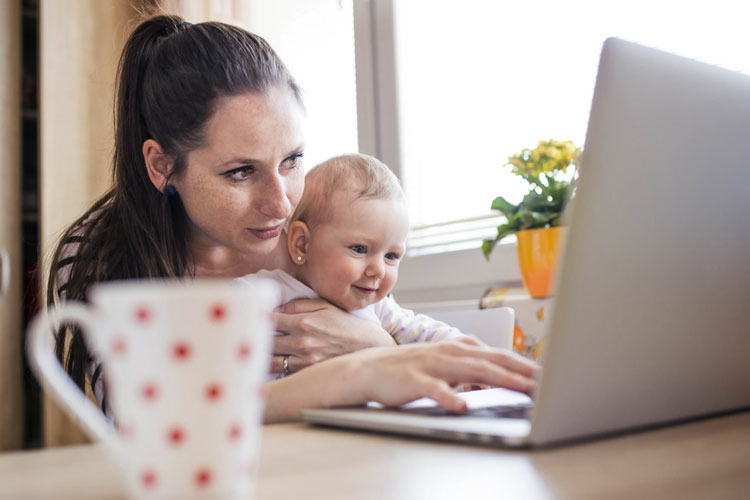If you’re among the brave parents who are gearing up to make this monumental move with your little one in tow, congratulations! You’re about to embark on a journey that will shape not only your own future but also the life of your newborn. So, we will be your trusted guide on the path to a seamless international relocation with a newborn.
Legal and documentation
These typically include birth certificates for both parents and the newborn, passports, and marriage certificates if applicable. Investigate the visa and residency requirements for your specific destination, as they can vary widely between countries. Some countries may also require background checks or medical examinations, so be prepared to fulfill these obligations.
Furthermore, remember to research and follow the precise procedures, which often involve submitting applications, attending interviews, and providing documentation related to the child’s identity and health. Don’t underestimate the importance of notarized translations for key documents. In many instances, official documents such as birth certificates and medical records need to be translated into the official language of your new country. Additionally, these translations must be notarized to be legally recognized, ensuring that you can navigate essential services, such as healthcare and education, without complications.
Packing and shipping
Ensure that baby essentials like diapers, formula, baby wipes, and a change of clothes are readily accessible. Pack these in a separate bag within your luggage for quick access during transit. Think about the weather at your destination, and pack accordingly, considering items like blankets or sunscreen. As for shipping baby supplies versus buying new ones upon arrival, there’s a balance to strike. While it might be tempting to bring everything from home, consider the costs and delays associated with shipping.
Opt for lightweight, collapsible items like strollers and portable cribs, but be open to purchasing bulky or disposable items locally. To stay organized, use clear, labeled containers for baby-related belongings. Pack enough diapers, wipes, formula, and snacks to last throughout the journey. Include a change of clothes for both you and your little one, as well as baby blankets or comfort items, to make the journey more comfortable.
Traveling internationally with a newborn

There are so many different things to handle when you prepare for an international relocation with a newborn. However, with global services put to task, experts can handle the entire process and take care of the most important tasks. Now, you can focus on planning the travel process with your newborn. Opt for flights that align with your baby’s sleep schedule, reducing the chances of a cranky traveler. Arrive at the airport well in advance to avoid the stress of rushing. Consider a baby carrier for hands-free mobility through security and terminals. Feeding, changing, and entertaining your baby during the journey requires careful preparation.
Carry enough baby formula or breast milk for the duration of the flight, as well as extra bottles and pacifiers to ease ear pressure. Pack a changing kit with diapers, wipes, and a changing pad for in-flight changes. Keep your baby engaged with small, lightweight toys and familiar comfort items, such as a favorite blanket or stuffed animal. Adhering to airline policies and regulations for traveling with an infant is vital. Familiarize yourself with the airline’s specific guidelines regarding carry-on items, child restraint systems, and seating arrangements. Notify the airline in advance if you require a bassinet or any special accommodations.
Unpacking and settling in
Set up your baby’s sleeping area first, ensuring it’s safe and comfortable. Gradually tackle other rooms, making sure to unpack baby-related items promptly for convenience. Baby-proof the new environment by securing cabinets, covering electrical outlets, and removing potential hazards. Ensure the baby’s crib or bassinet adheres to safety standards and is free from any loose bedding or toys. Familiarize yourself with the nearest healthcare facilities and emergency contacts in case you need them.
Managing the challenges of different time zones and routines for your baby requires patience and flexibility. Gradually adapt your baby’s schedule to the local time zone by adjusting feeding, napping, and playtime. Maintain a consistent bedtime routine to help your baby settle into a new sleep pattern. Seeking local support groups and resources for parents can be a lifeline during the settling-in process. Look for community organizations, parenting forums, or expat groups where you can connect with others who have faced similar challenges. These networks can offer valuable advice, emotional support, and a sense of belonging as you navigate your new life in a foreign land with your newborn.
Healthcare and baby supplies

Research and identify reputable pediatricians or healthcare providers in your area well in advance of your move. Seek recommendations from fellow expats, local residents, or online forums to find a healthcare professional who aligns with your preferences and needs.
Schedule an appointment with a pediatrician as soon as you arrive to establish a baseline of care. Take the time to interview the healthcare professional, discussing your baby’s medical history, any specific concerns, and the expected schedule of check-ups and vaccinations. Don’t forget to transfer your baby’s medical records and vaccination history from your home country to the new one.
Cultural and language adaptation
Embracing the culture and language of your new home is an essential element of building a fulfilling life abroad. For your newborn, it lays the foundation for a richer, more diverse worldview from the very beginning. Introducing your baby to the new culture is a delightful process. So, start with simple activities like visiting local parks, markets, or festivals, exposing your child to the sights, sounds, and flavors of the new environment. Learning basic local phrases and customs can be a bridge to meaningful connections.
Familiarize yourself with common greetings, polite phrases, and local customs. Additionally, show genuine interest in the local culture, listen to the stories and perspectives of your new neighbors, and be willing to embrace differences. Your open-hearted approach will not only enrich your own experience but also set a positive example for your baby, demonstrating the value of diversity and empathy in our interconnected world.
Relocating internationally with help from movers

They are well-versed in the logistics of international moves, including navigating customs, handling documentation, and managing the transportation of your belongings across borders. With a newborn in the picture, you can rest assured that movingtransparent.com is handling the heavy lifting, allowing you to focus on your baby’s well-being.
They offer insurance options that protect your valuable possessions, offering reassurance during a time of significant transition. This is particularly important when relocating with a newborn, as you want to ensure that your baby’s essential items, like cribs and baby gear, arrive safely and in good condition. They can assist with packing, ensuring that fragile or essential baby items are handled with care. This not only saves you time but also minimizes the stress of packing while tending to a newborn. Efficiency is another key advantage.
An international relocation with a newborn doesn’t have to be difficult
As you embark on an international relocation with a newborn, remember that the challenges and triumphs you’ll encounter are part of the process. The importance of legal documentation, the significance of healthcare and baby supplies, and the journey of cultural and language adaptation are all integral parts of this narrative.





Leave a Reply